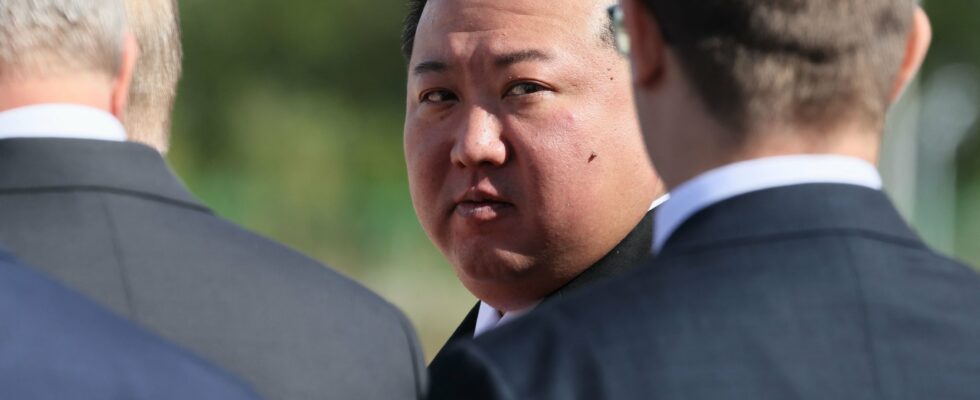North Korea continues its destabilization operations. To shake its southern rival, Pyongyang has resorted in recent days to a 70-year-old method: sending balloons into South Korean airspace. A process much less risky than open military action, but which nonetheless constitutes a new attempt at intimidation.
Hundreds of residents saw balloons floating in the air, before landing on the ground. In total, some 260 aircraft were detected by South Korean authorities, in no less than eight provinces located north of Seoul, and in border areas. Each carrying one or more white plastic bags.
Inside, North Korean propaganda leaflets mixed with trash and animal feces. “Garbage” balloons, or “gifts of sincerity”, summarizes Pyongyang cynically. North Korea claims this retaliation following a propaganda campaign led by South Korean activists in its country. “Intrusions”, dating from the beginning of the month, when balloons were sent towards North Korea.
North Korean retaliation
Pro-democracy activists, including North Koreans, had slipped anti-Pyongyang leaflets, money, food and medicines banned in North Korea. But also computer equipment, like USB keys loaded with K-Pop clips, a musical genre banned within the dictatorship. An operation which did not fail to piss off Pyongyang.
On Sunday, North Korea’s deputy defense minister denounced “dangerous provocations” and promised retaliation. Live, Kim Kang Il even gave the outlines, pledging that “mounds of waste and rubbish will be scattered in the border areas and inside the Republic of Korea”. And scathing: “This one will directly experience the efforts necessary to remove them.”
The specter of psychological warfare
Taking the minister’s threats seriously, South Korean provincial authorities sent missives on Tuesday, May 28, to residents living inside the targeted areas: “refrain from all outdoor activities,” the message recommends. Upon discovering the North Korean operation the next day, the Seoul army called on the population not to stay near the balloons. “They contain dirty waste and garbage,” says an officer.
And to ask South Koreans to file a report at the nearest military base or police station if they have the slightest doubt about an “unidentified object”. North Korea “seriously threatens the security of our people […] and is fully responsible for what is happening because of the balloons and we sternly warn him to immediately stop this inhumane and crude action,” the army said.
For the South Korean presidential office, North Korea is seeking to “test” its neighbor’s reaction. This, in order to understand “how psychological warfare and the impact of complex, small-scale threats on our country,” said a close friend of President Yoon Suk-yeol. A hypothesis which tends to be confirmed over the course of destabilization operations. According to the newspaper Donga IlboPyongyang also reportedly tried to block GPS signals in the southern part of Korea, to no avail.
